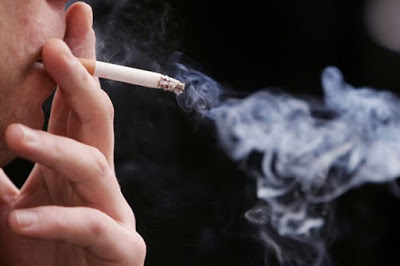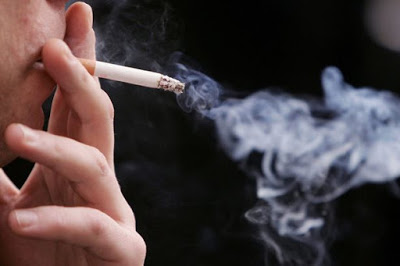Initially, the bill banning smoking, which had been submitted to Parliament by the Ministry of Health, was described as "draconian" and too strict. After months of debate, several controversies and disagreements between the parties, several postponements of its debate and a marathon session of the Plenary Session of the Parliament, which included the consideration of dozens of amendments, the final law bears almost no resemblance to the original government proposal. In fact, the only provisions that did not change were the harmonizations with the relevant European Directive, which, however, concern only the basic principles of law.
The bill, which is now a law, was divided into two parts. The first concerned provisions in line with the European acquis and the second national regulations.
The harmonizing provisions of the law include taking measures to crack down on the illicit trade in tobacco products, banning e-cigarettes and hookahs in places where traditional cigarettes are also banned, and instituting special warning signs on all tobacco products.
The final form of the law at the national level, emerged after dozens of amendments which were submitted to the Plenary Session of the Parliament on Friday, February 24, when the bill was passed.
Under the new law, smoking is strictly prohibited in workplaces, schools, tuition centers, hospitals and playgrounds, as well as in the areas around them (for example in playground cafes).
Smoking is also prohibited in discotheques, nightclubs and pubs (where there are no outdoor areas) and in public toilets.
Instead, smoking is now allowed in open spaces that are adjacent to enclosed spaces and do not have a permanent partition, as long as 30% of this space is open. This provision mainly concerns terraces or kiosks in cafes, restaurants and leisure centers, which in winter are covered with temporary constructions.
Under the new law, it will be possible to create special smoking rooms (cigar lounge) in hotels. In hotels there will also be the possibility of operating a room or rooms on one floor, especially for smokers.
Special rooms in which smoking will be allowed are provided by the law on ports and airports, while smoking is also allowed in sports venues after the Plenary rejected relevant amendments.
It is clarified that any space that is covered by a roof and has one side permanently open is also considered as an open outdoor space. An open outdoor space is also considered to be the space adjacent to the indoor or enclosed space, without the need for the installation of a permanent partition, when it has at least one side permanently open. Finally, according to the new legislation, the space that connects the interior with the space where smoking is allowed, must be connected to a door.
Smoking is also allowed in all casino play areas. An amendment was tabled by AKEL to ban smoking in casinos, but it was not approved by a majority in plenary. It is reported that there has been a lot of discussion on this issue since the involved Ministries of Commerce and Finance had expressed concerns that if smoking was banned in the ongoing development of the casino, the possibility of postponing the whole project and financially damage the state.
Finally, the use of e-cigarettes is permitted by law in e-cigarette shops for testing purposes.
In all enclosed spaces where smoking will be allowed there should be a separate ventilation system, which will be determined and controlled by the electromechanical service.
WHICH IS ALLOWED
· In open spaces which are "adjacent to closed spaces and without a permanent partition, as long as 30% of this space is open. Areas that are covered by a roof and have one side permanently open are also included.
· In special hotel rooms (cigar lounge).
· In special rooms or smoking rooms, in hotels.
· In special rooms for smokers in ports and airports.
· In sports venues.
PROHIBITED
· In workplaces.
· In schools.
· In tutoring.
· In hospitals.
· In playgrounds.
· In record stores.
· In nightclubs.
· In pubs.
· In public toilets.
The bans also apply to areas around schools, tuition centers, hospitals and playgrounds.
Fines and penalties from € 85 to € 2.000
Serious changes had also occurred regarding the penalties provided by this law. In fact, the significant reduction in the amount of fines originally provided for in the bill was one of the points of conflict between the parliamentary parties. Eventually, as the law was formulated, the sale of tobacco products to minors is prohibited, but there is no out-of-court fine for the sale of tobacco products to minors. The cases are brought to justice and the prescribed fine reaches € 2.000.
An extrajudicial sum of € 85 can be issued by police officers or other public officials in cases of violation of the law, while a referral to the Court can be made depending on the case by police officers with the fine up to € 2.000. An administrative fine of € 850 is imposed by the Head of Health Services or other public officials.
The offenses are included in the specific legislation and concern: Smoking in a forbidden area, smoking in a vehicle in which a minor is transported and failure to mark a tobacco product. It is also a crime to obstruct the work of the Police.
The legislation was passed by just one vote. 22 of the 44 MPs present (DISY, EDEK, Citizens' Alliance and Solidarity Movement) voted in favor of the bill, as it had been formulated after the previous vote, while 21 (AKEL, DIKO and ELAM) voted in favor, while only of Ecologists, George Perdikis, abstained and thus allowed the passage of the law.
Source: Liberal

